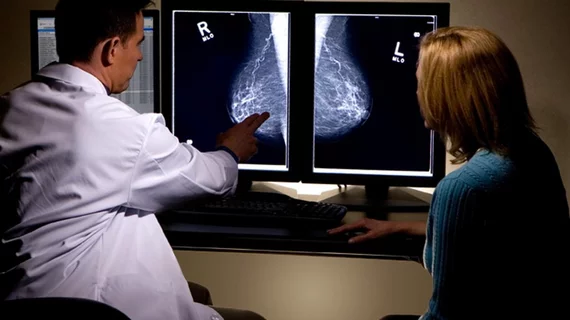Providers have uncovered recall disagreements between commonly used breast screening techniques that they say may impact cancer detection and should be further investigated.
University of Texas MD Anderson Cancer Center researchers prospectively compared synthesized mammography plus digital breast tomosynthesis against full-field digital mammography paired with DBT.
Many U.S. centers now utilize SM-DBT based partly on its reduced recall rates and better cancer detection capabilities, the authors noted Wednesday in Academic Radiology.
Both techniques produced similar stats, including recall rates, but diverged on deciding which patients to recommend for follow-up exams. An overwhelming majority were for breast calcifications.
In fact, SM combined with DBT failed to suggest additional imaging for a small group of findings, which were later recalled during FFDM-DBT. Those calcifications proved to be high-grade cancers, the authors noted.
Monica L. Huang, MD, with MD Anderson’s Department of Breast Imaging and colleagues said this particular finding was “interesting.”
“This [recall contrast] is probably related to differences in the appearance of imaging findings on FFDM and SM,” Huang et al. added. “With software that generates SM images with more similar appearance to FFDM, with improved spatial resolution, and without artifact, this difference may disappear in the future.”
The prospective comparison included 1,022 patients who underwent breast screening via both techniques between December 2015 and January 2017. One of eight radiologists interpreted the exams in order.
Recall rates were similar between SM-DBT (7.3%) compared to FFDM-DBT (7.9%). The former, however, recalled six patients that the latter did not. Similarly, FFDM-DBT called seven patients back in for exams that SM-DBT didn’t.
“In conclusion, although SM+DBT and FFDM+DBT are statistically equivalent in recall rates, with no statistically significant difference in cancer detection rates … they demonstrate disagreements and differences in recall as well as in cancer detection which need to be further studied to determine clinical significance,” the authors explained.
Read the entire study here.

